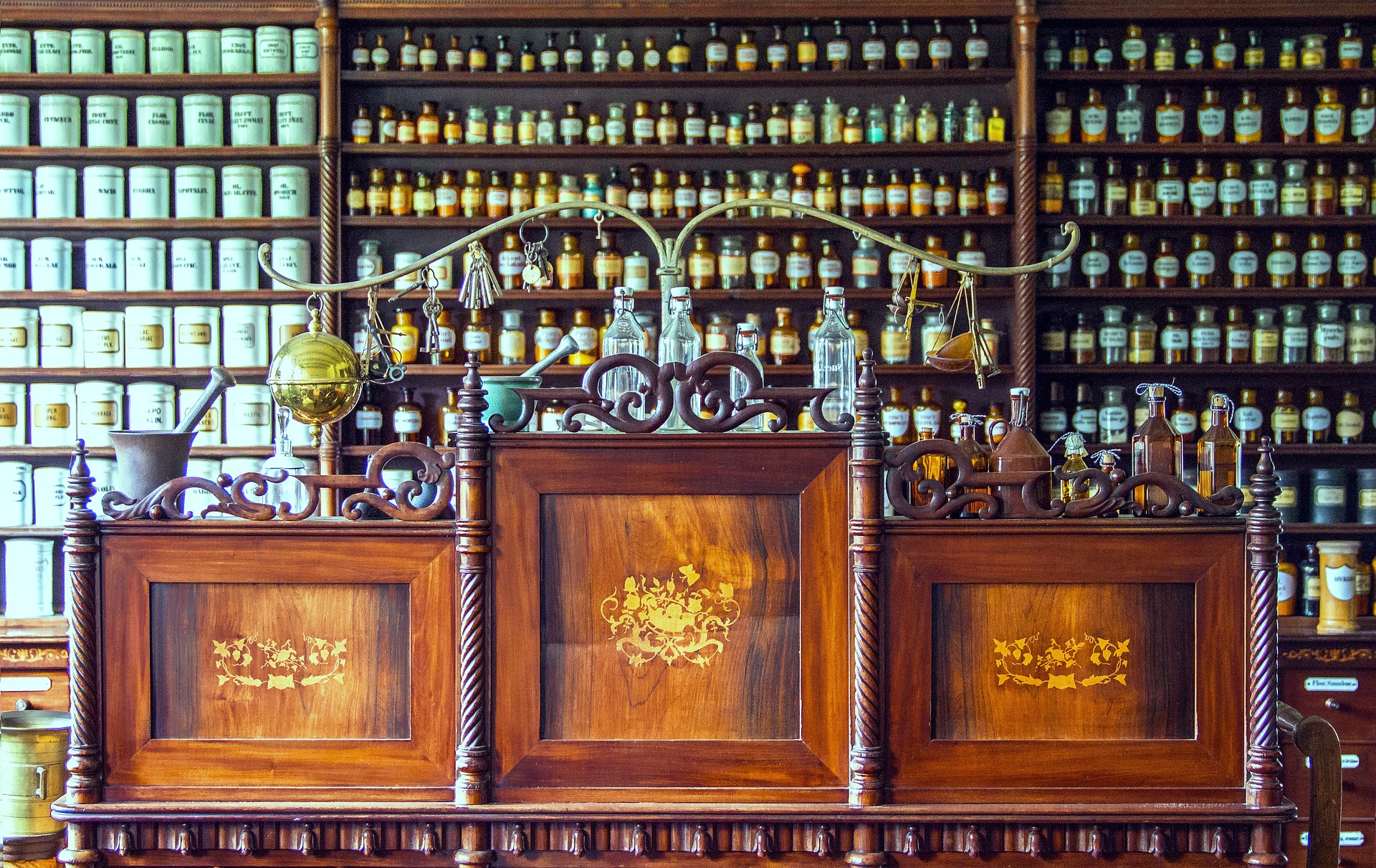My Pivot from Retail Pharmacy to Hospital Pharmacy
(And Some Things I learned)
I started with my first retail pharmacy company in May of 2007. I applied for a position at this particular pharmacy company the same month I received an acceptance letter from my pharmacy school. I was excited and proud to see the title of “pharmacy intern” on my application.
I arrived at the training pharmacy a couple of weeks after accepting the position and right at the beginning of the summer. I started out making (if I remember correctly) 13.50/hour, which was on the high end of anything I had earned previously. I was pumped to finally have my first real job in the pharmacy world. I didn’t know an ACEI from a beta-blocker but I was happy to be in the building.
Luckily for me, the company I started with was one of the better employers for pharmacy in the retail setting. Pharmacists worked 8 hours a day and the profit sharing program was healthy and employee focused with bonuses that reflected the company’s performance that year. Health benefits and choices were simple to understand and at reasonable prices. C-suite management was composed of pharmacists who understood the pressures of being behind the counter and what it meant to juggle clinical and business responsibilities behind the counter. The subprime crisis of 2008 hadn’t occurred yet, so I guess in management terms I guess the company wasn’t as lean as it could have been. What this translated to in practice was greater employee satisfaction and more relaxed work environments. Simply put, I really enjoyed my time as an intern. I was learning the workflow in a pharmacy, customer service, and what OTC recommendations made sense for different ailments. It was a great learning experience.
However, the most important lesson I learned, as an intern was not related to a clinical decision tree or an OTC recommendation. The most important lesson I learned as an intern was from the customers. The lesson was about choosing my attitude. I remember that after being a pharmacy intern for a couple of years, working at a particularly busy pharmacy in an upscale part of town (which came with very particular customers), I was tempted to become inured to the blessing it was to be able to practice pharmacy in the retail setting in America. I remember, feeling particularly beat up after a couple of very rude, ungrateful patients.

It suddenly came to me that I had a choice to make. I could give in to the prevailing attitude about working in the demanding setting I was in or I could choose to have a different attitude about it. I could decide to choose a bright attitude that said “hey, working in the healthcare field in any capacity is a blessing and a responsibility. I can choose my attitude and treat each person like a human being. I can smile, slow them down, remind them that they, too, are human beings and this isn’t just a transaction but an opportunity to connect.” This shift in attitude was only made possible by giving myself permission to slow down, look at each person in their eye and meeting their irritation or impatience with understanding and empathy. What I found was that once you treated people with decency and compassion, even if in the moment, they were jerks, 97% of people would come to the realization that they were being jerks and adjust their attitudes, and even become apologetic. Because, the truth is, we’re not meeting people in their most shining moments. The people who come to the pharmacy are usually in some phase of ill health and their attitude may be adversely affected as a result. I think once people realized that I wasn’t trying to rush them out the door but was actually looking to connect with them as human beings their whole attitude shifted from a transactional viewpoint to a relational one. Who couldn’t use another friendly face during their hectic day?
Ok, Back to my path in Retail. I continued to learn as a pharmacy intern and in my fourth year had the good fortune of being on a leadership rotation with a district manager (DM) who took a liking to me. This district manager must have seen something in my work ethic and asked me if I wanted to transfer from the much crazier district I was in currently to his upper-scale and less busy district. I agreed, and before I knew it, I was a staff pharmacist at a pharmacy in a great part of town, learning from a great pharmacy manager.
Six months after being at that pharmacy and learning about the ups and downs of pharmacy as a staff pharmacist, my next opportunity came up. I still remember being called up to the corporate office. Waiting on the thinly cushioned waiting room couch and wondering if I’d verified a prescription that went on to do some type of harm. Wondering if someone had sent in a complaint. Or if I’d been wearing too much cologne and people needed the big bosses to tell me to lower my daily serving size of cologne. It was a happy surprise when my district manager asked me if I wanted to move on from being a staff pharmacist to the big time job of pharmacy manager. I took a day to think it over, asked the advice of mentors, and then accepted the offer.

I remember being so gung-ho about turning my first pharmacy around after getting the information about which pharmacy I’d be leading. I snuck up the pharmacy on my next off day, which was probably 45 minutes from where I currently worked and pretended I was a customer. I watched their work flow and saw how technicians treated the customers and started to formulate a game plan for how we would move things forward. I held a mandatory employee meeting the first weeks or two I was there and quickly outlined the projects that would move us forward. We standardized inventory so that floaters wouldn’t have to adjust to our store, we combed through old medications and returned expires for credit, bringing down days of inventory on hand. I drove hours to stores that would take medications that we couldn’t use and couldn’t return. I increased our verified by promise time. I promoted technicians with good attitudes and had a couple of tough employee coaching conversations with technicians with bad attitudes. Our store was heading in the right direction heading into inventory day.
In the weeks leading up to my first inventory as pharmacy manager, I had a couple of realizations. 1. I was spending what seemed like every waking moment at the store. I found some time to relax and hang out with friends but the opportunities to do so were few and far between because of the distance from “civilization”. 2. My body was taking a beating, and standing for 12 hours a day was playing havoc on my hips and knees. 3. I wasn’t happy. While the work could be rewarding, I was finding myself not looking forward to 2-25 more years of the same type of work. The culmination of these three factors made up my mind. I decided to apply for residency. I scrambled and starting looking at programs that I would be interested in. I contacted old preceptors, professors, and mentors and started priming them for recommendations. I dusted off the Curriculum Vitae and started the PhorCas application process. I emailed old preceptors at rotation sites and started asking for tours of programs I was interested in.

I applied. I Interviewed. Then I waited. The time period between the last interview and match day was nerve wracking. I would go into work, work hard, and hope that there was a residency letter in my inbox when I got home. I applied to four programs. I interviewed at three programs. Finally, after a couple weeks of the second interview, I received a letter from the program I was semi-excited about. They regretted to inform me that I wouldn’t be considered for a position. I regretted their letter. I threw the letter in the trash, and went back to work. I agonized about the last program’s response. About a week later another program sent me a letter informing me that I wasn’t fit to participate in their program. I shredded that letter. One day while on the way back from work, I heard a notification sound go of f on my 100-year-old blackberry.
I was on my way in to work when I received the email that would change my career trajectory. I worked that eight-hour shift like it was only 2 hours. The program I was most excited about had accepted me!
The one decision to apply for residency and step outside my current comfort zone led to opportunities that significantly affected my happiness level. I can honestly say I’m happy with my current work-life balance and the balance of the work that I do during the day.
What does that mean for you? Am I special? No. Did I have a 4.5 GPA coming out of pharmacy school? Nowhere close. Was I the best pharmacy resident ever to complete a residency? Not by a long shot. I think what my story shows is that having the career you want is more a function of persistence, planning, and faith than a function of your extraordinary mental abilities. Grade wise, I was completely average, and probably wouldn’t be considered for a residency in many programs today due to the tightening competition. However, even today there are ways to make the transition from retail to clinical practice without a residency. It will probably just take some sacrifice, some orthogonal thinking, and patience. Good luck!

